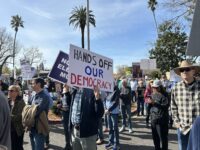There is a yogic practice in Tibet that takes place in a charnel ground, or what we call a graveyard. Graveyards in Tibet, which is mostly rock, are not the neat and grassy parks we have here in America. Tibetan charnel grounds are bone-scattered yards where the dead are dismembered and their body parts left for vultures and wild animals to pick clean.
During charnel ground practice, the yogi sits day and night in meditation among the bones, contemplating birth, aging, sickness and death, including the reality of his own. He envisions his own body in pieces, feels the spirits of the dead, confronts fear, the seductions of vanity, and having finally surrendered his ego, leaves having realized his own non-being.
Our American version is the yoga of politics.
Engaging in politics means watching yourself being scavenged by vultures in the press, reading comments by others with bones to chew, and listening to your own eulogy from the mouths of complete strangers. It means confronting the terrifying ghosts of your past actions, meeting the spirits of possible futures, and encountering the seductions of your own ego.
Though it’s been said “All politics is local,” the reality is “All politics is internal.”
Our internal experience is one of emotion. The power of emotion drives human history and everything we do. Whether in pursuit of pleasure, thirsting for revenge, feeling sorrowful, scornful, compassionate or elated, our emotions comprise the experience of living. Changing moment to moment, what poet Leonard Cohen calls “our secret life,” emotions fuel thoughts and ideas and are an elemental expression of life-force itself. Emotions are our “state-of-being” and weave the fabric of ordinary life.
Politics is nothing more than ordinary life with the power dial turned to maximum. The opinions of others constantly surround us, but in politics they seem louder and more severe. The same is true for projections, those ways in which we attribute to others the motivations and emotions we experience in ourselves; they are more vivid and colorful. Seductions — vanity, flattery, fawning, and the like — are more intense, and ego’s response equally so, accounting for the sexual affairs of the politically powerful. In short, politics is completely ordinary but at the same time life powered by emotional rocket fuel.
The yoga of politics is not for everyone; it can be a fantasy-filled ego trip but potentially a life-changing spiritual practice. The difference is how one works with the experience, and the basis of one’s motivation. If the motivation truly is to benefit others, and given vanity this must be continuously examined and tested, it can become a deeply meaningful practice. In any case, destruction of ego always is the end result, be it from the folly of vanity and imagined self-importance that finally explodes or the realization that fully serving others means giving up all privacy and attachment to outcomes.
I highly recommend the yoga of politics to those who want to witness the destruction of their own ego. Ultimately, none of us lie buried in the graveyard thinking about how wonderful we are or how beautiful we look. The yoga of politics gives us a powerful opportunity to see ourselves as we really are while still alive, which is to say a “self-made self,” created fully by our imagination, to which we’ve become emotionally attached.
Attracted to politics? The vultures await.




